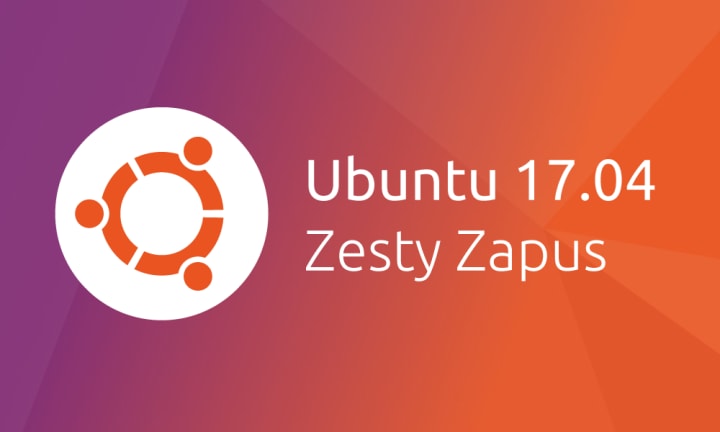Canonical
on 13 April 2017
Ubuntu 17.04 supports widest range of container capabilities

Ubuntu 17.04 released today, supporting Kubernetes, Docker, LXD and Snaps. This is the 26th release of Ubuntu, the world’s most widely deployed Linux OS and the leading platform for cloud and IoT operations.
“The breadth and pace of open source innovation has made it the center of gravity in technology today, and the Ubuntu community has once again delivered the most reliable way to consume that innovation” said Mark Shuttleworth, Founder of Canonical and Ubuntu. “While containers are the name of the game in cloud today, I would also highlight the speed at which snaps are enabling developers to deliver the very best bits to Linux machines on Ubuntu and other distributions, from the desktop to the cloud and beyond, at the edge of computing.”
Containerisation of applications and operations
Ubuntu offers the most complete portfolio of container support in a Linux distribution, with snaps for singleton apps, LXD by Canonical for lightweight VM-style machine containers, and auto-updating Docker snap packages available in stable, candidate, beta and edge channels. The Canonical Distribution of Kubernetes 1.6, representing the very latest upstream container infrastructure, has 100% compatibility with Google’s hosted Kubernetes service GKE.
Snaps are now supported across 10 Linux distributions. More than 1,000 snaps have been published since the release of Ubuntu 16.04 LTS across a range of Linux devices and sectors such as IoT (eg Blue Horizon, openHAB), networking (eg Quagga, Free Range Routing, SONIC, Keepalived), desktop (KDE, web, libreoffice and GNOME apps), and cloud / server (for example Kubernetes, etcd, Rocket.Chat). GNOME Software supports snap installation directly from a link on a web page and Canonical is working with both KDE and GNOME to ensure smooth integration of snaps in those desktop environments.
LXD version 2.12, has gained support for GPUs in container machines, including NVidia CUDA support, making for very high performance GPGPU computing at scale. The new storage API for LXD enables the creation of multiple storage pools and attachment of volumes from those pools to LXD machine containers. LXD provides almost instant launching of container guests of a wide range of Linux distributions.
The Canonical Distribution of Kubernetes (CDK) is the easiest way to deploy and operate K8s across Google, Azure, Amazon, Vmware, OpenStack and bare metal infrastructure, using a single command: ‘conjure-up kubernetes’. The product is now based on Kubernetes 1.6 with a commitment to ongoing updates matching the upstream release schedule. CDK 1.6 brings federation of multiple Kubernetes clusters, increased number of Kubernetes workers, improvements to authentication and access control, and native GPU support.
OpenStack
Ubuntu 17.04 includes OpenStack’s latest Ocata release, which is also available on Ubuntu 16.04 LTS via Canonical’s public Cloud Archive.
Canonical’s OpenStack offering supports upgrades of running clouds without workload interruption. The introduction of Cells v2 in this release ensures that new clouds have a consistent way to scale from small to very large as capacity requirements change. Canonical’s BootStack service is a full OpenStack build, operate and transfer capability, with the option for Canonical to provide long-term operations services for a fixed price per server or per VM.
Ubuntu 17.04 also includes Manila, OpenStack’s shared file system capability, and improvements for LDAP integration. Beta snaps for OpenStack Nova, Cinder, Glance, Keystone and Neutron are also available giving users an exciting new way to deploy OpenStack control plane services.
Network performance in clouds and guests
Ubuntu 17.04 delivers the Linux 4.10 kernel , with Amazon’s Elastic Network Adaptor (ENA) driver which supports up to 20 Gbps network speed on AWS. SR-IOV support for Microsoft Azure allows Azure guests direct access to the hardware NIC which results in higher throughput and lower latencies. The 4.10 kernel will also become the LTS Rolling Kernel in 16.04 LTS, with initial support for IBM’s Power 9 and Intel’s Purley platform.
Simpler to install, simpler to run
With its 17.04 release, Ubuntu switches from swap partitions to using swap files by default. This means a simpler partition layouts during installation, disk space savings and easier adjustment of swap size. LibreOffice 5.3, is the new default office suite. Driverless printing makes the installation and configuration of compatible printers automatic either when connecting via WiFi or USB.
Ubuntu 17.04, with the widest range of desktop environments, compilers, stacks and tools, represents the efforts of thousands of developers across Debian, Ubuntu and many upstream projects.
Our thanks go to everyone who makes this extraordinary platform for innovation possible.



